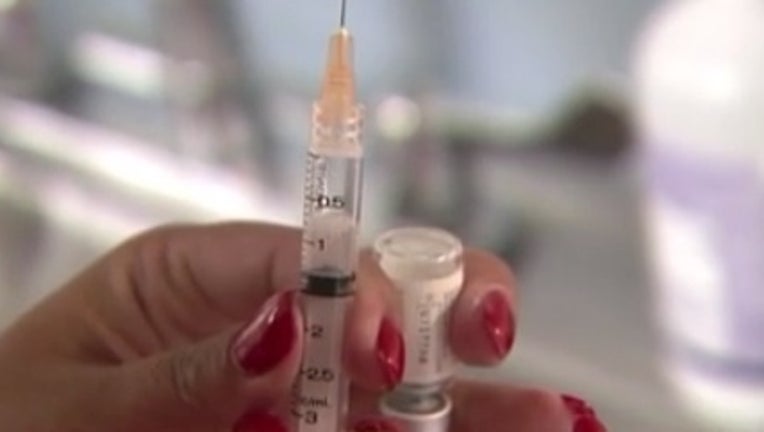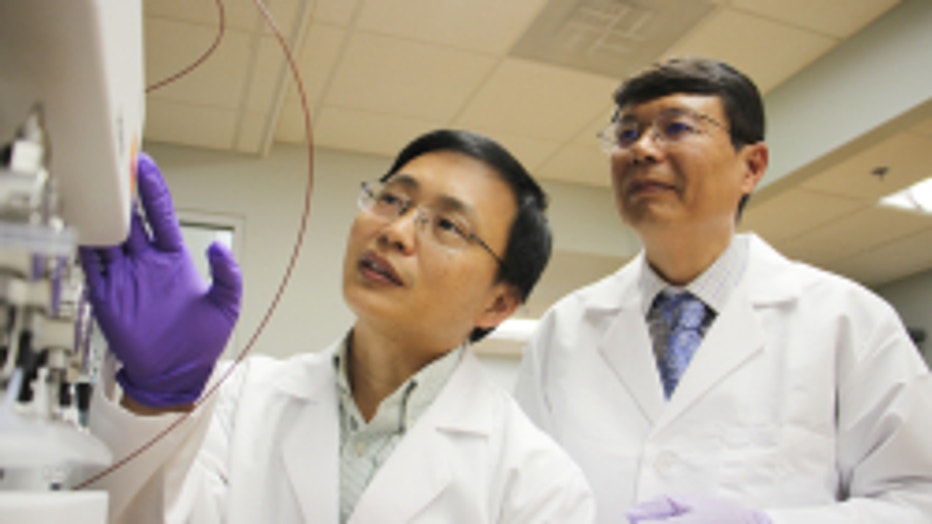Breakthrough anti-cancer drug discovered by UF researchers

GAINESVILLE, Fla. - Researchers at the University of Florida College of Pharmacy believe they have stumbled upon a drug that will target different types of cancer safely and more effectively.
The findings, published in the journal Nature Medicine, states that the new drug will target leukemia, lymphoma, and breast and lung cancers.
Scientists had been trying to find an alternative to a drug that that U.S. Food and Drug Administration would not approve.
"Known as DT2216, the drug acts on a protein called B-cell lymphoma-extra large, or BCL-XL, which fuels the growth of malignant cells and strengthens their resistance to therapy," UF Health wrote in a press release. "An inhibitor of the protein already exists, but it causes a drop in blood platelets, raising the risk of bleeding."

That's why UF researchers developed the new drug that will target the protein causing malignant cell growth. The new technology relies on small molecules that, instead of just suppressing cancer-promoting proteins, help cells break them down.
As a result, reseachers say the drug is more potent against a variety of human tumor cells while being less toxic to platelets.
RELATED: Trial vaccine wipes out breast cancer in Florida patient
“We were fascinated by our findings because this was a first-of-its-kind study presenting a novel strategy to reduce the toxicity of an antitumor drug using PROTAC technology,” said Daohong Zhou, M.D., a professor of pharmacodynamics in the UF College of Pharmacy and the Henry E. Innes Professorship of Cancer Research at the UF Health Cancer Center.
"The researchers demonstrated in mathematical and mouse models that DT2216 suppressed the growth of several tumors — including T-cell acute lymphoblastic leukemia and drug-resistant breast and small cell lung cancers — on its own and in combination with other drugs, without significantly lowering blood platelet count."
“These findings support the potential of DT2216 to be developed as a first-in-class BCL-XL-targeting antitumor agent,” said Guangrong Zheng, Ph.D., an associate professor of medicinal chemistry in the UF College of Pharmacy, who jointly directed the research alongside Zhou.
Researchers say that additional testing is required before moving to clinical trials in people.

